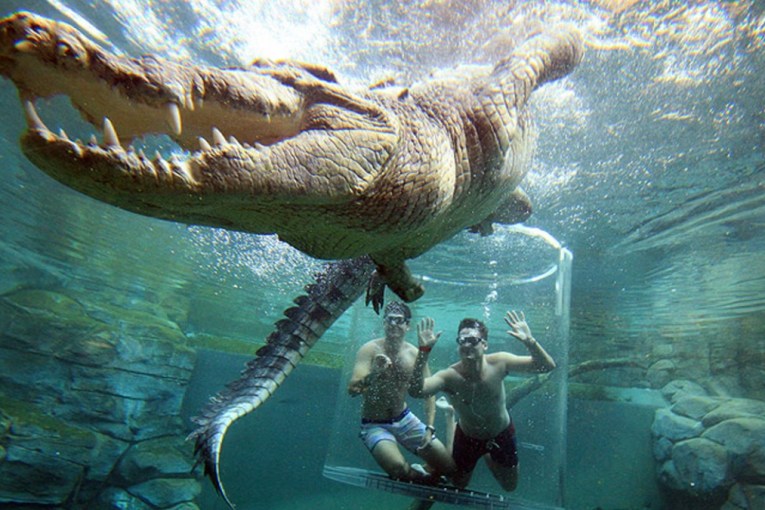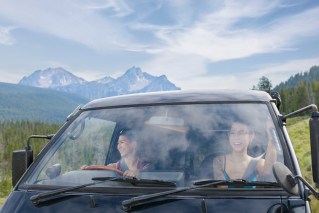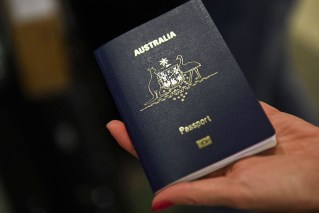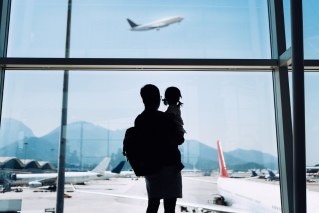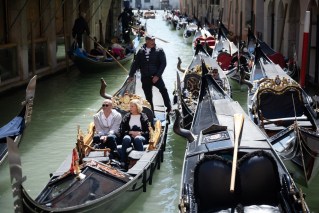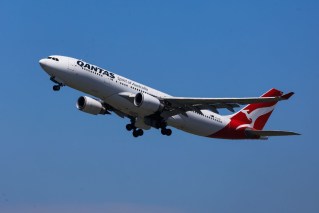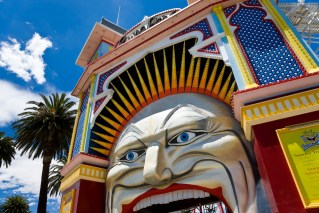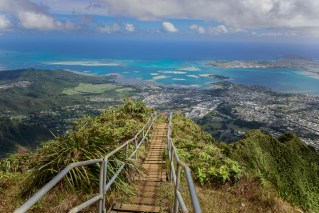A lonelier planet? Why the best journeys are still found in the pages of printed guidebooks

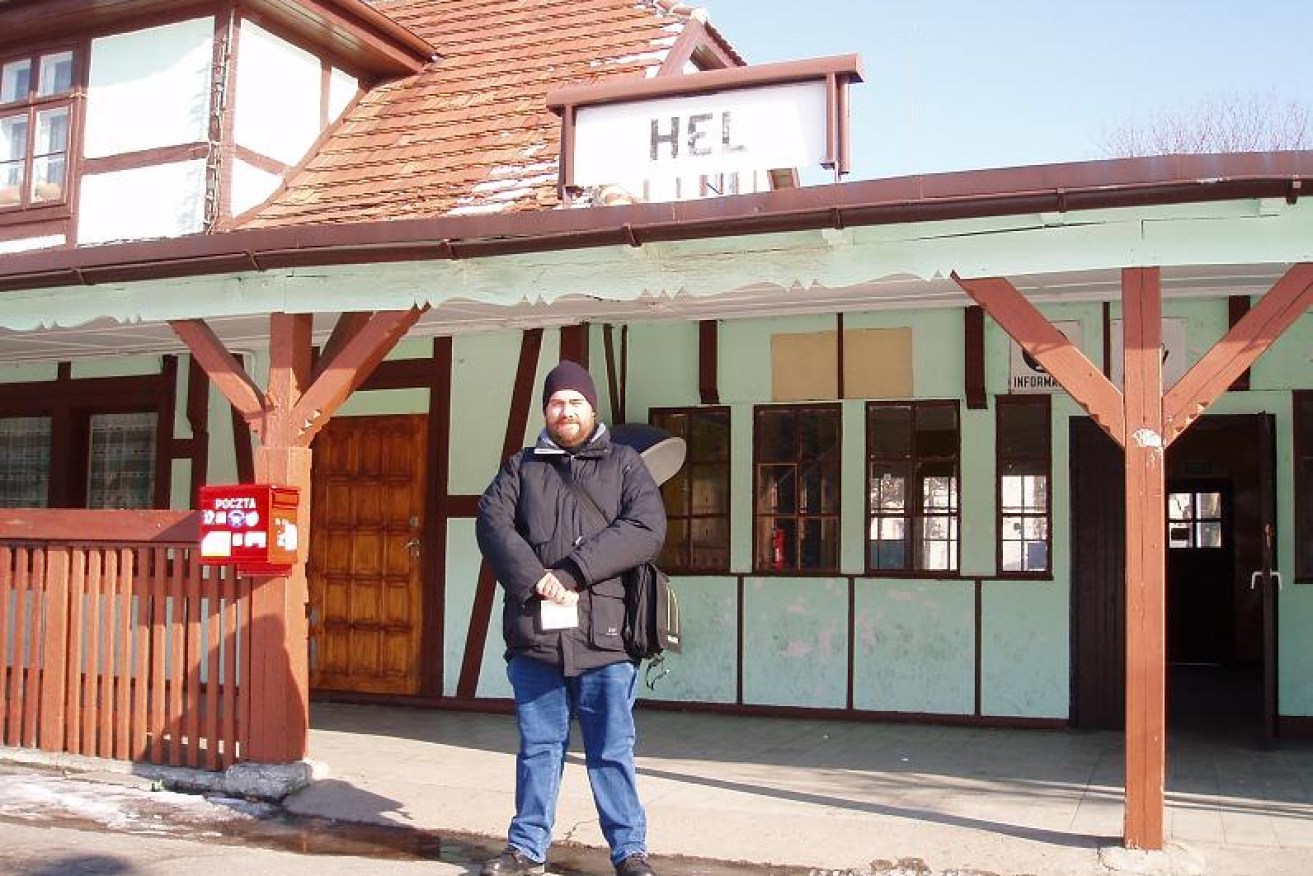
The author on the road to Hel, a seaside town in Poland. Photo: Tim Richards
“Buy me a beer!”
I was on a bus in the Bieszczady range of the Carpathian Mountains, and the request came from a man who’d just been released from prison and was on his way home to his family.
It was spring in south-eastern Poland, but the foothills we were passing through on the way to the city of Sanok were still white with snow.
The ex-con thought I should buy him a beer from one of the stops along this local bus route, so he could drink it aboard.
“Dlaczego?” (“Why?”) I kept asking him in Polish. But it was a delaying tactic, and I was feeling threatened by the man’s aggressive tone, even though his friend reassured me he was harmless.
Rattled, I took the precaution of losing them when we arrived in Sanok at sunset, nipping across a footbridge above the rails at the near-deserted train station.

A snowy winter village in Poland’s Bieszczady mountains. Photo: AAP
Such tricky situations were part of the price paid for being a Lonely Planet writer, and (reflected upon later) made for good anecdotes if you survived them.
That 2006 trip was my first assignment for Lonely Planet, which had been founded by Tony and Maureen Wheeler in 1973. In the year before the iPhone was first released, the highest tech I could employ on the road was text messaging; sometimes to question surprised cartographers back in Melbourne.
A few months ago, I completed the most recent of my eight on-the-road Lonely Planet gigs – an update of the Pocket Melbourne guide – with the help of vastly expanded technology. But updating guidebooks by wearing out shoe leather is still the crux of the work.
That’s why it was dispiriting to read that Lonely Planet has decided to shutter its Melbourne and London offices in response to the massive disruption to travel caused by COVID-19. The company will be run from Dublin and Tennessee by its owners since 2013, American billionaire Brad Kelley’s NC2 Media.

The author barracks for the home team at a pub in Gdansk. Photo: Tim Richards
To its credit, LP was the only major guidebook publisher still updating its books by sending writers into the field for several weeks, additionally barring them from accepting freebies.
In my experience, this approach produces results: By being on the spot, talking to locals and wandering down side-streets, you discover places worth including in the book that would elude a desk-bound web surfer.
We have to pay our expenses out of our fee, but that means we can assess cafes, bars, restaurants and sights without anyone knowing someone from LP has been in. Hotels are trickier, so I generally use a cover story about setting up a future visit to see different rooms.
It’s a vast amount of work. Before arriving I’d print out and mark up pages from the previous book with possible new inclusions. Then I’d traverse each city by foot and public transport, making notes in snow, rain, heat. A train to the next city, and repeat for several weeks. There wasn’t a lot of time for cocktails by the pool.
So where are we now? Do Lonely Planet books matter in the midst of a near-total collapse of the travel industry?
I think so. Travel has added so much to people’s lives, and Lonely Planet has been an integral part of that experience. Australians in particular have had their hands held by this knowledgeable friend (as the guidebooks sometimes seemed, with their laconic and honest style), as we stepped off a plane somewhere that would have otherwise seemed daunting. We’re famously intrepid travellers, exploring beyond the tourist traps. Lonely Planet can claim part of the credit for that.

Lonely Planet has closed offices in Melbourne and London amid the coronavirus pandemic.
Even if we can initially only travel within Australia, or perhaps to countries which also have the virus under control (New Zealand, perhaps, or Fiji), expertise will be needed more than ever to guide us through a changed landscape.
When I filed my Pocket Melbourne update in January, I included plenty of great indie cafes, bars and restaurants that might not survive the lockdown. But I’m confident the work can be revised as necessary.
Before the virus hit, travel guidebook sales were healthy, having stabilised after the disruptions of the global financial crisis a decade before. There’s still an appetite for books in print: Whether they’re read on the sofa or lugged around the world to become a dog-eared, scrawled-upon reminder of one’s journeys. Though Lonely Planet also sells its guides in digital formats, it’s harder to make money from online content.
In my opinion, any type of curated guide is so much better than TripAdvisor’s context-free, atomised info.
On my second research gig in Poland in 2007, I spent a day in a town that had been carried over from a previous edition and decided the whole place was surplus to requirements – I made my argument to the editor and we excised it, so I could use that space to highlight better attractions. In the same guidebook I described a particular hotel thus: “The hideous concrete exterior evokes the worst architectural excesses of postwar Poland, and the abstract lime-green light shades in the foyer don’t help.”
That honesty has always distinguished LP guides from marketing brochures, and from newspaper and magazine articles focusing largely on a destination’s good points.
Travel will be back – with new vigour, one day – and so, I hope, will Lonely Planet. The alternative doesn’t bear contemplating. Sifting through online user-generated content to plan a trip, review by painful review, is not my idea of fun.
Tim Richards is a freelance travel writer, see iwriter.com.au. His book The Kick of Stalin’s Cow, about a journey across post-communist Poland, is available at Amazon.com.
